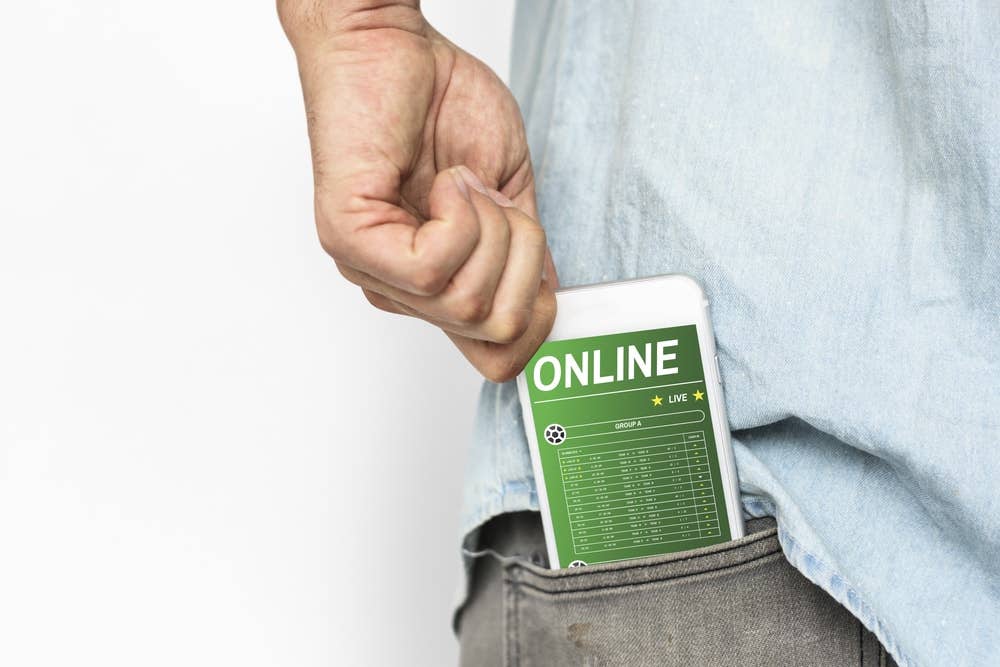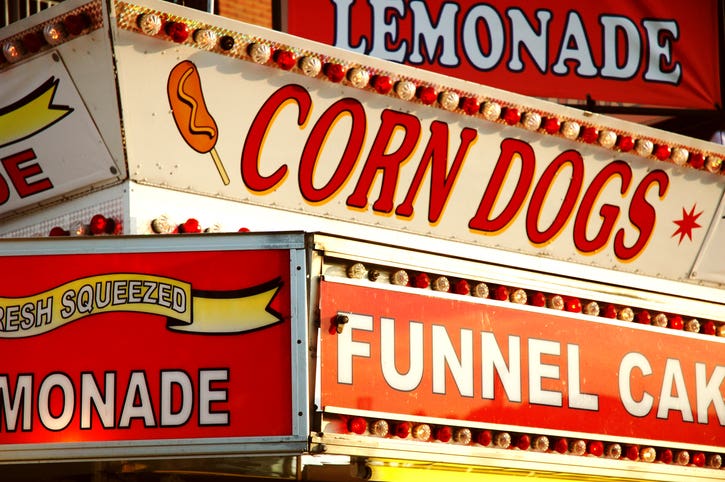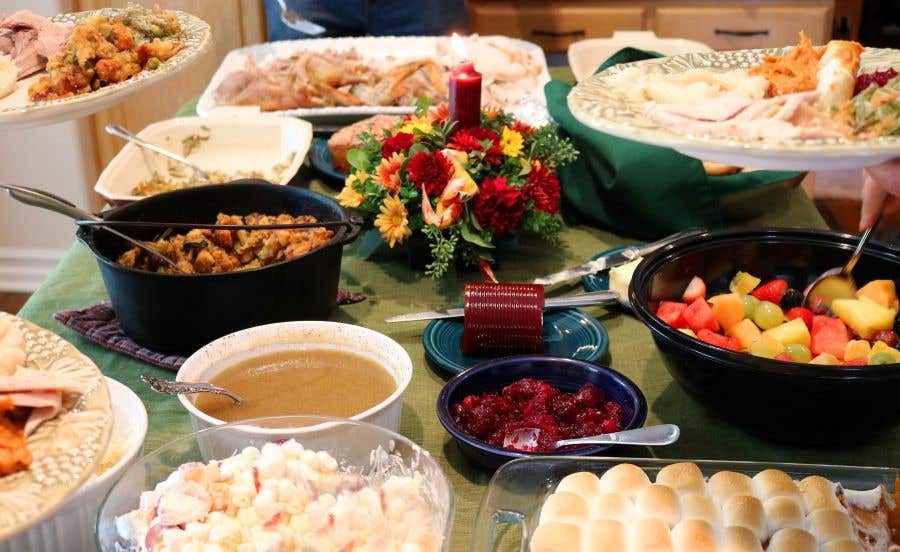
Sports Betting Terms
Online and mobile sports betting is now legal in plenty of states across the US, as the gambling revolution continues to sweep the nation. We’ve partnered with sports media and analytics experts Dimers.com, to bring you all the information you need before embarking on your journey into the exciting world of parlays and props!
Here’s your guide to online Sports Betting 101.
Action
Throwing some money down on a game/event.
Against the Spread, aka ‘ATS’
That team’s record against the point spread for that season. If a team is 4-1 ATS, it means it has a 4-1 record in terms of ‘covering’ the spread. Teams that are reliable ATS can be a goldmine for bettors.
Backdoor Cover
This one can be painful or thrilling – depending upon which side of the equation your cash is on! Basically, a backdoor cover occurs when a team scores points/goals/runs right at the end of a game to cover the spread unexpectedly, from a seemingly improbable position.
Bad Beat
Self-explanatory, really! This one involves losing a bet you were in a terrific position to win. Similar to a backdoor cover, ‘bad beat’ is often referenced when a late event changes the result and/or the side that covers the spread. They are often brutal!
Bankroll
The amount of money you have access to for your betting. Bankroll management is fundamental to a successful sports betting career.
Bowler
Someone who places bets on behalf of another. Reasons to use a bowler include being limited or banned by a sportsbook for being too profitable. Also known as a ‘runner’ (see below).
Book
A term that is short for bookmaker or online sportsbook; a person or company/corporation that is willing to take bets from others.
Bookie
An illegal sportsbook equivalent. Individuals usually found lurking in bars and down dark alleyways. Good luck getting your payout if you win big from one of these guys. Beware!
Buying Points
Sportsbooks can allow players to alter the set points line and will adjust the odds accordingly. Say a bettor decides they want to bet a team as a 4-point underdog (+4) instead of the set line of 2.5. By doing this they have essentially “bought” 1-and-a-half-points, and the odds of this bet will be reduced accordingly.
Closing Line
The final line before the game or event gets underway. The closing line can often bear little resemblance to the opening version once bettors, or ‘the public’ have taken a position.
Cover
The result on a point-spread bet. For an underdog to ‘cover the spread’ they need to win outright or lose by less than the set points spread. For a favorite to cover, it has to win by more than that spread.
Data Mining
What the Dimers.com DimersBOT does for every single game or sporting event, running over 10,000 simulations on each to produce predicted outcomes and suggested bets.
Dime
An assist, hence the word ‘dimers’. Dimers.com aims to help sports bettors excel at sports betting. It’s also a term for bet of $1,000. If you bet “five dimes,” that not only means you’re crazy, but it also means you’ve just bet $5,000 on something. Close your eyes and hope for the best!
Dime Line
A line where the juice or vig is 10%. Common in Totals (over/under) and Spread betting. Does -110 look familiar? That’s a dime line.
Dog
Short for underdog – everyone loves one!
Double Up
In sports betting a double up is a bet for twice the size of your usual stake size.
Edge
The single most important factor when being profitable from betting on sports. If you have a team as a much more likely chance to win than the sportsbooks’ odds suggest, then that’s an edge. This is where Dimers.com comes into its own with their ‘edge-identifer’ technology, which basically does the work for you.
Even Money
You put down $1 to win $1, with a payout of $2. These odds are usually displayed as +100.
Exposure
The max amount of cash a sportsbook stands to lose on an event if the public gets the W.
Favorite
The favorite is identified by either odds (the favorite is always lower odds) or points (their opponent has a ‘head start’ via the points spread) and is essentially the expected H2H winner of a game or event.
First half bet
Betting on only the first half of a game – not the end result. In baseball this bet usually applies to the first 5 innings.
Fixed
Not something you want to be betting on, unless of course you’re in on the fix!! Extremely rare these days but some sports are more, shall we say, dishonest than others. Thankfully match fixing is very much a thing of the past.
Futures Bet
A bet place on a selected team’s performance throughout the season. It could be betting on the Green Bay Packers to win the Super Bowl, before the season starts, for instance. Or whether the Boston Red Sox will win over a certain number of games in the MLB regular season.
Gamble
To throw down money on the outcome of sports result or casino game.
Handicapper
Often these individuals will try to sell you their ‘VIP picks package’. Don’t be fooled. If they were so reliable then why are they their making money selling picks to you? Surely they’re winning a fortune through their gambling, right? Again, beware! You shouldn’t be paying touts for picks packages. And, besides, where’s the fun in that!!? Dimers.com has a dedicated free section on their site called Dimers’ Quick Picks that provides you with everything you could ever want – including identifying edges against the sportsbooks!
Handle
The total amount of money bet on a specific event or outcome.
High Roller
Someone who bets waaaayy too much. Whether they’re successful or not is a whole other thing. High rollers almost always have huge bankrolls.
In-Game Betting
Otherwise known as ‘in-play’ betting. Betting on things to happen while the game or event is underway.
Juice
Essentially a ‘commission’ the sportsbook takes on a bet. A good example is when you see -110 odds at the Spread. In this case, regardless of which team covers, the book has made their 10%.
Limit
The maximum amount you’re allowed to bet on any one wager with a sportsbook. Different limits can apply to different people, too. If you’re a successful sports bettor you can expect to have your limit reduced. This is very rare though.
Line
In sports betting, this can apply to both the odds and the points spread for a selected game or event.
Linemaker
This is the person who decides what the original betting lines are and when/if they should be moved, based on money coming for either side.
Line Movement
This is usually based on the amount of money being thrown down on one side, often due to things such as weather conditions and injuries.
Line Shopping
Another important piece of the sports betting puzzle. Ensuring you get the best line for your chosen wager is super important! If you don’t line shop it’s like paying $50 more for a TV, despite knowing you can get it for less right across the road in another store – you just wouldn’t do that, right? This is why it’s super important to have at least two accounts with the best online sportsbooks so you can snap up extra points, or 10% better odds, when you see them. The sportsbooks all have different lines and odds, so use this to your advantage.
Lock
There is no such thing as a lock… however, in the eyes of a bettor, a lock is a guaranteed win, something that just cannot lose.
Longshot
Also known as a dark horse. A team or person that is long odds to win in the eyes of the sportsbook odds makers.
Middle
Say you bet one team as a -3.5 favorite, then the line moves to -4.5 points. You could then bet the opposing team at +4.5 and hope the favorite wins by four.
Moneyline
A head to head bet in which you take one team or player to beat their opponent. Often there will some disparity between the odds of the two, due to the implied probability of either result occurring.
Mush
Someone who is considered to be bad luck, or jinxed, when it comes to sports betting.
Nickel Line
Similarly to a ‘dime line’, a nickel line sports bets is where the juice, or sportsbook commission, is just 5%.
Off the Board
When you can no longer bet on a particular game due to the sportsbook no longer allowing action on it. You will see this happen if rumors start swirling about a star player potentially not playing.
Opening Line
The line posted at the time the sportsbooks started taking bets on a particular game or event.
Over/Under (Total)
You’ll find this term used across multiple bet types such as; will the total points, runs or goals in a game be over or under the line set by the sportsbooks? Will LeBron James get over or under the 30 points the sportsbooks expect him to get against the Clippers?
Parlay
This is fast becoming the most popular bet type across the United States, because the more teams you bet, the greater the odds and the bigger the payout IF all of the wagers within the parlay win. It’s risky, but it sure is fine to ride a parlay or two. For example, you could take your ‘lock’ from the NBA, NHL and MLB on a Saturday and put them all into a parlay. If they all win the odds are multiplied and you win big.
Pick ’em
A rare game with no defined favorite or underdog due to the closeness of the matchup. The point spread is set at 0, and the winner of the game outright is also deemed the winner at the spread.
Point Spread (or just “Spread”)
This is the number of points the sportsbooks deem the favourite likely to win by. They will be, let’s say, -5 points and the underdog will be +5 points. At the end of the game you add the +5 points to the underdog and minus the -5 points from the favorite to determine who ‘covered’.
Price
More prevalent when using decimal prices ($1.90 vs. -110), but essentially another word for odds.
Prop Bet
A bet type that’s not normally on the betting board, such as which team will score first or if a certain player will score a touchdown. These are especially popular on events such as the Super Bowl – where bettors can throw cash down on crazy things like ‘how long will the national anthem go for?’ and ‘what song will the half time entertainer sing first?’
Puck Line
Hockey lines are almost always +/- 1.5, unlike the varying point spreads in other sports (baseball and soccer aside). Taking this into account, the sportsbooks will alter the odds they attach to each side of the Puck Line – rather than the usual -110 of a traditional spread bet.
Push
Example: a 5-point favorite wins by exactly five points and therefore all bets are refunded. This is considered a ‘push’ with no winners because the underdog obviously also lost by 5 points.
Reduced Juice
This is essentially the book reducing their commission on bets taken. You would usually see -105 instead of the common -110.
Round Robin
Taking three or more teams in 2-team parlays of all the different combinations.
Run Line
Baseball lines are almost always +/- 1.5, unlike the varying point spreads in other sports (hockey and soccer aside). Taking this into account, the sportsbooks will alter the odds they attach to each side of the Run Line – rather than the usual -110 of a traditional spread bet.
Runner
An individual who places bets on behalf of someone else (aka “a bowler”), usually because the person concerned can’t get the bet down themselves due to an unfavorable relationship with the sportsbook.
Sharp
A dedicated, highly sophisticated sports bettor, usually using some kind of system for their betting. Also known as a wise guy or pro.
Sharp Money
Bets placed by people the sportsbooks deem to be a ‘sharp’. A sign of sharp money is usually through reverse line movement – where the public money is mostly on one side, but the volume is on the other, usually from the Sharps.
Spread
Long name: Point Spread. See above.
Sportsbook
A licenced and regulated company that accepts legal bets. Often referred to as the House.
Straight Up/Out
A bet placed on the team or player that you believe will win, regardless of any points spread, and usually placed at the Money Line.
Taking the Points
Betting on the underdog and the perceived advantage of taking the +points at the spread.
Taking the Price
Throwing cash down on the underdog and accepting money line odds.
Teaser
Betting on more than one team but manipulating the points in those games in the bettor’s favor. Like a parlay, all games/events have to win for you to get your payout.
Ticket
In the old days you’d get a ticket back from the sportbook or casino with your bet printed on it. Thankfully these days it’s mostly digital.
Total
The expected point, goal or run total in a game. For example, in a baseball game, if the total is set by the books at 8 runs, bettors can bet that there will either be more or less than that number. So, OVER 8 runs or UNDER 8 runs – hence Over/Under.
Tout
Similarly to a handicapper, these are people that sell picks on games or events. You don’t have to pay for picks, Dimers.com has a dedicated free section on their site called Dimers’ Quick Picks that provides you with ever
Trends
Using historical data to try and predict future outcomes.
Underdog
‘Dogs’ for short. The team or player that is expected to lose. You can either bet that that team will lose by less than the points spread (ATS). OR get good odds that it will actually win the game and beat the ‘favorite’. For example, if something is a 3/1 dog, you can bet $100 that that team or player will win. If it wins, you win $300 plus get back your original $100 stake for a payout of $400.
Value
Another reason having multiple sportsbook odds is so important. Like ‘line shopping’, getting the best odds for a bet is super important. It also allows you to really capitalize when you have found yourself an edge.
Vig
A commission taken by the sportsbook; also called “juice” and it is factored in to the odds, most commonly around 10%.
Wager
A bet, some action, a sweat, a gamble.
Wiseguy
Someone who considers themselves a professional bettor. Also commonly referred to as “a sharp”.





